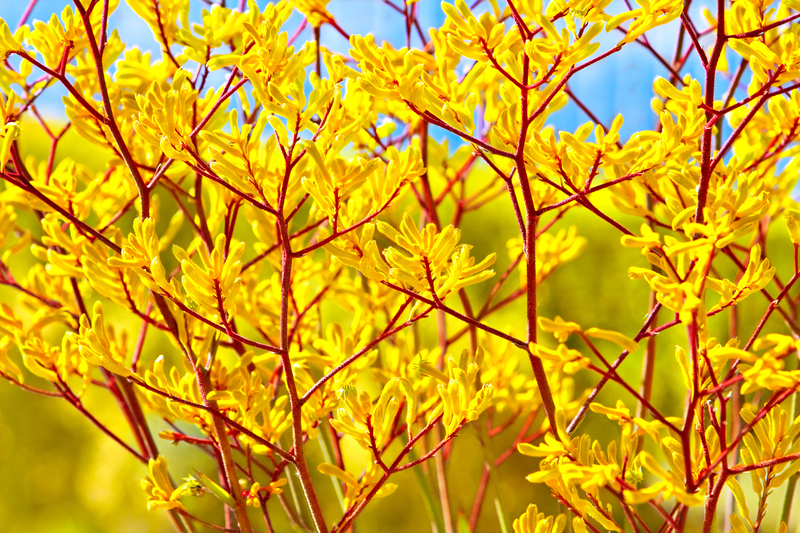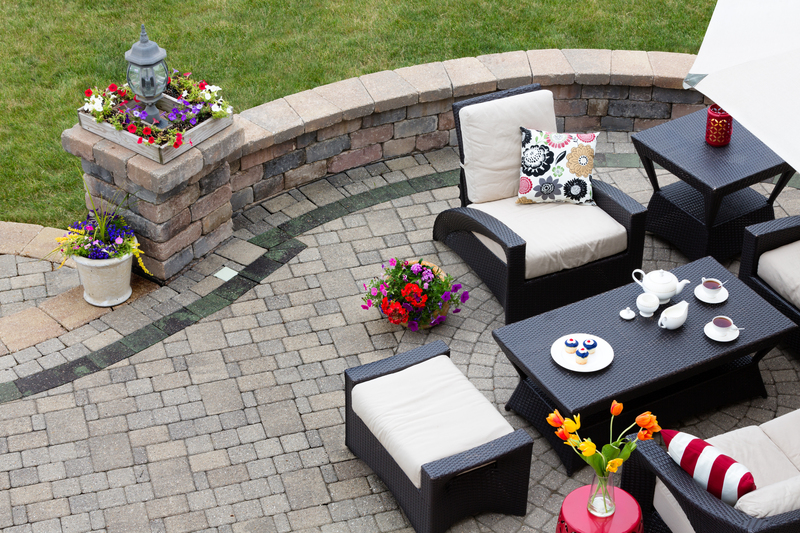Flourish with 9 Gardening Tips Every New Gardener Needs
Posted on 22/08/2025
Flourish with 9 Gardening Tips Every New Gardener Needs
Are you ready to embark on a journey to cultivate your own beautiful garden? Whether you have a small balcony or a spacious backyard, starting a garden can be both exciting and a bit overwhelming. With the right guidance, even novice gardeners can unlock the secrets to a thriving green space. In this comprehensive guide, we'll walk you through nine essential gardening tips every beginner should know. By implementing these techniques, you'll set the stage for lush growth, healthy plants, and an enriching gardening experience.
1. Start with Proper Planning
The journey to a flourishing garden begins with careful planning. Take time to research which types of plants thrive in your climate and the spaces you have available.
Assess Your Space
- *Measure your available area* - whether it's an outdoor plot or indoor containers.
- *Observe the sunlight and shade patterns throughout the day.*
- *Decide if you'll grow vegetables, flowers, herbs, or a combination.*
Tip: *Choose low-maintenance plants* that match your experience and local climate conditions. Many new gardeners have success with hearty options like marigolds, tomatoes, and basil.

2. Learn About Your Soil
Understanding your soil is a foundation for gardening success. Different plants have unique soil requirements, so it's crucial to know what you're working with.
Test and Amend Your Soil
- Purchase an affordable soil testing kit from your local garden center.
- Check for pH, nutrient levels, and texture.
- If needed, amend your soil with compost, organic matter, or sand for better drainage and fertility.
Pro Gardner's Advice: *Healthy soil = healthy plants*. Just a small investment of time pays off with strong root development and vibrant blooms.
3. Choose the Right Tools
Investing in a few basic, high-quality gardening tools can make your tasks easier and more enjoyable. As a new gardener, you don't need a vast collection--just the essentials.
Must-Have Gardening Tools
- Hand trowel
- Pruning shears
- Garden gloves
- Watering can or hose with adjustable nozzle
- Garden fork
- Spade or shovel
Tip: *Keep your tools clean and sharp to ensure efficiency* and to prevent spreading disease among your plants.
4. Understand Watering Basics
Overwatering is one of the most common mistakes new gardeners make. Each plant has specific moisture needs, so it's important to establish a proper watering routine.
Water Smartly
- Water early in the morning or late in the evening to reduce evaporation.
- Test soil moisture by sticking your finger an inch deep--only water if it feels dry.
- Focus water at the base of the plant instead of on leaves to avoid diseases.
- Mulch your beds to retain soil moisture and reduce weeds.
Remember: Not all plants need the same amount of water. Group plants with similar requirements together for easier care.
5. Feed Your Plants Well
Just like people, plants need nutrients to grow vigorously. While some soils are rich in natural nutrients, most benefit from supplemental feeding.
Fertilizing Tips for Beginners
- Choose an all-purpose, slow-release fertilizer for most garden beds.
- Compost is a natural, eco-friendly way to enrich your soil.
- Follow application guidelines carefully--too much fertilizer can harm plants.
Tip: Look for organic fertilizers and amendments for a sustainable, earth-friendly garden.
6. Pay Attention to Plant Spacing
The excitement of planting often leads to overcrowding. Give each variety the room it needs by following spacing instructions on seed packets or plant labels.
Why Spacing Matters
- Proper airflow helps prevent fungal diseases.
- Roots have space to access nutrients and water.
- Plants grow larger and bear more flowers or fruits.
*Pro Tip*: If you're using containers, make sure pots are large enough for full-grown plants and have good drainage holes.
7. Keep Pests and Diseases at Bay
Healthy plants are less likely to be attacked by pests, but every gardener eventually faces some challenges. Prevention and quick action are your best defenses.
Simple Pest and Disease Management
- Inspect plants regularly for signs of infestation.
- Remove damaged or diseased leaves promptly.
- Use natural solutions like neem oil, insecticidal soap, or hand-picking bugs when possible.
- Attract beneficial insects such as ladybugs and lacewings to control pests naturally.
Tip: *Keep the garden tidy* to reduce hiding places for pests and fungal spores.
8. Continue Learning and Experimenting
Gardening is a continuous learning experience. Don't be afraid to experiment, try new plants, or even make a few mistakes. Every season will teach you something new.
Keep Growing Your Gardening Knowledge
- Read gardening books, blogs, and magazines.
- Join online gardening communities or local clubs for support and advice.
- Document your progress in a garden journal for future reference.
Remember: Even professional gardeners started as beginners. Growth comes from curiosity and trying new things.
9. Enjoy the Process!
Above all, enjoy your gardening journey. The benefits of gardening extend far beyond beautiful flowers or bountiful harvests. Gardening reduces stress, connects you to nature, and fosters a sense of accomplishment.
Celebrate Your Successes--Big and Small
- Take time to notice the beauty in small sprouts and blooms.
- Share your harvest and flowers with family and friends.
- Take photos to track your progress and inspire others.
- Relax in your garden and soak up the peace it brings.
Tip: *Gardening is not just a hobby--it's a lifestyle*. Let your garden be a reflection of your personality and passions.

Bonus: Quick Answers to Common Gardening Questions
How do I start a garden for the first time?
Begin by choosing a sunny spot, test your soil, select easy-to-grow plants, and follow the essential gardening tips covered in this guide. Remember to start small and expand as you gain confidence.
What are the easiest plants for beginners?
- Lettuce
- Zinnias
- Sunflowers
- Radishes
- Mint
- Marigolds
How often should I water my garden?
Most gardens need about 1 inch of water per week, but it depends on the climate, soil, and plant type. Always check soil moisture before watering.
Conclusion: Ready to Flourish?
By following these 9 essential gardening tips for new gardeners, you'll lay the groundwork for a successful and satisfying gardening experience. Remember, patience and continued learning are your most valuable gardening tools. With care, attention, and a bit of trial and error, your garden will soon blossom into a sanctuary of beauty and bounty. So, get your hands dirty, nurture your plants, and enjoy every step as you flourish as a new gardener!
For more expert gardening advice, tips for beginners, and inspiration as you grow, be sure to explore additional resources and connect with fellow gardening enthusiasts!
Latest Posts
Perfect Gardening Gadgets for Outdoor Enthusiasts
Harmonize Garden Beauty and Comfort with Exceptional Seating
Herbs, Vegetables, and More: Your Container Gardening Toolkit
Transform ordinary backyard into an extraordinary kid's garden

